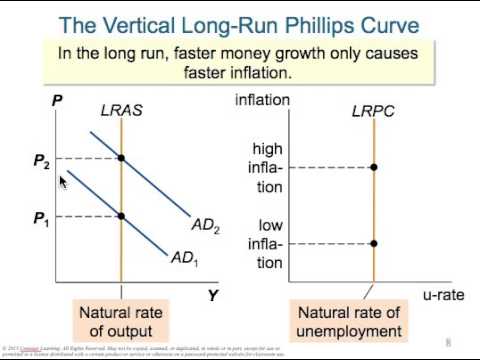What Is a Master Budget?
Contents:


Discuss 3 things an organisation may consider or do in order to develop long-term and short-term financial plans and financial priorities. Creating the sales budget first will reduce the amount of work needed for many of the other budgets. A master budget is a series of smaller budgets that are rolled up into one larger budget to provide a more comprehensive view of your business.
Sources of amounts are in notes to the budgeted balance sheet. Managers prepare a schedule of cash payments for direct materials. To do this, managers must know how direct materials are purchased and, if on credit, when payment is made. TSC’s materials purchases are entirely on credit. It makes full payment in the month following purchases. Using this information, the schedule of cash payments for direct materials is in Exhibit 20.15.
investing activities include Inventory on December 31, 2018 consists of 750 pounds of rubber compound used to manufacture the tires. Direct materials requirements are 2.5 pounds of rubber compound per tire. The cost of the compound Is $4 per pound. Each tire requires 0.30 hours of direct labor; direct labor costs average $20 per hour.
Why is a master budget important?
They should be a way of ensuring that everyone understands what is expected. Significant deviations from the budget should be investigated so that managers understand changing conditions and their implications for the organization. Managers should not ordinarily be punished for deviations from the budget. Every company has set targets and goals for each year, and it is through these budgets the company prepares the plan of action to achieve them. Master budget accounting becomes a tool for the management to identify its goals well in advance and channel the organization’s resources towards them. It provides a rough guideline for the company’s near-term expectations.

The process begins with the sales budget. A master budget is a series of budget schedules outlining the organization’s plans for the upcoming period, typically prepared monthly, quarterly, or annually. The master budget includes budgets for sales, production, operating expenses, and capital expenditures. Managers use this information to create budgeted financial statements .
Some companies take a top-down approach to budgeting , while other companies take a bottom-up approach . The bottom-up approach tends to be more effective as employees are more inclined to accept the budget. Regardless of the approach used, the budget committee is responsible for overseeing and approving the master budget. CSee Figure 9.4 “Production Budget for Jerry’s Ice Cream” for the production budget. A series of budget schedules outlining the organization’s plans for the upcoming period.
How to Calculate Dividends, Retained Earnings and Statement of Cash Flow
They help communicate https://1investing.in/ and provide a basis for evaluation. They guarantee the company will be profitable if it meets its objectives. They enable the budget committee to earn their paycheck. The master budget consists of operating and financial budgets. Master budgets are important because they serve as a planning tool to guide the company’s actions in the upcoming time period. They also help the firm direct the allocation of its resources to achieve its goals.
For TSC, we multiply the 710 units to produce in October by 0.25 hour to get 177.5 hours needed. We then compute cost of direct materials purchases as $10,240 for October ($20 × 512 pounds). Employees may understate sales budgets and overstate expense budgets to allow cushion called budgetary slack. A master budget is most useful in evaluating a manager’s performance in controlling costs.
- Here, you should consider interest expenses or debt repayments.
- New budget preparers frequently feel overwhelmed with the entire process, but familiarizing yourself with the components of budgeting is helpful, as are the following tips.
- It is prepared using information from the other budgets.
- A master budget is static, accounting for one level of production volume.
For example, if you plan to produce 12,000 rocking chairs, how much will those materials cost? If you’re not manufacturing items, you can skip the production budget and focus on the materials budget instead. The operating budget consists of projected sales revenue, the cost of goods sold, and all the separate operating expense budgets you’ll be creating. A master budget is an essential tool for businesses of all sizes. It helps managers and executives identify revenue sources, track expenses, and plan ahead for future financial needs. By having a well-defined master budget in place, companies can make more informed decisions regarding their spending habits and ensure that they are making the most of their resources.
Step 5: Create an overhead budget
Sometimes they do, more often they don’t. Once you have sales projections down, many of the other budgets fall into place. Creating a budget is a learning process. New budget preparers frequently feel overwhelmed with the entire process, but familiarizing yourself with the components of budgeting is helpful, as are the following tips. Creating the smaller budgets using a standard budget format makes the creation of the master budget simpler and more accurate. Managers tend to ignore new business opportunities, because all resources are already allocated toward attaining the budget, and their personal incentives are tied to the budget.
- A budget shows how management expects to acquire and use resources to achieve its objectives.
- To do this, managers must know how direct materials are purchased and, if on credit, when payment is made.
- Its master budget includes operating, capital expenditures, and cash budgets for each month in each quarter.
- The general and administrative expense budget reports those expenses expected during the budget period.
- Prepare Gavin’s annual financial budget for 2019, including budgeted income statement and budgeted balance sheet.
Your labor budget also helps you plan payroll costs. An operating budget, or operational budget, consists of all expenses and revenues your business expects to use for its operations. Your operating budget outlines the funds your company needs to operate efficiently. A direct labor budget is the key budget for a service firm. If an accounting firm underestimates the direct labor hours needed to complete an audit, it might charge too low a price. If the accounting firm overestimates the direct labor hours needed, it might bid too high a price .
At its most fundamental level, financial planning as a whole begins with selecting a budgeting method. By now, you should know that we could either use the bottom-up or the top-down approach. Once you have that out of the way, you are ready to calculate projected sales. Bringing together various streams of interrelated information can be a cumbersome task. Should we start with projecting the units to be produced?

The direct labor cost for each employee is shown here. 60% of $84,000 sales budgeted for December from the sales budget (in Exhibit 20.4). Interest on Loan Activity If the cash balance exceeds $20,000 at month-end, TSC uses the excess to repay loans. If the cash balance is below $20,000 at month-end, TSC takes out a loan for the shortage.
Tips and best practices for making a master budget
Forcing the organization to follow the budget requires a group of financial analysts who track down and report on variances from the plan. This adds unnecessary overhead expense to the business. When compiling the budget, employees tend to estimate low sales and high expenses, so that they can easily meet the budget and achieve their compensation plans.
Then, we add the budgeted sales units for the period which come from the Sales budget. This will give us the required units needed for the period. Then, we subtract the number of units in beginning finished inventory to get the total units to be produced in the period. Financial StatementsFinancial statements are written reports prepared by a company’s management to present the company’s financial affairs over a given period . Capital budgeting is used to manage money that is used by businesses to make large purchases that are used to create their products.
Budgets are statements of management’s plans stated in financial terms. The cash budget states cash inflows and outflows, expected borrowing, and expected investments, usually on a monthly basis. Master budget preparation requires inputs of personnel from all the departments in the organization. There is a tendency of departmental managers to overestimate expenditure and underestimate revenues in order to achieve the budget easily.
Keystone State Chapter, American Society for Public Administration … – PA Times
Keystone State Chapter, American Society for Public Administration ….
Posted: Sat, 01 Apr 2023 07:00:00 GMT [source]
The sales budget is the cornerstone of the master budget. A master budget includes only financial aspects of a plan and excludes non-financial aspects. The preparation of the master budget starts with a sales budget. Understand what a master budget is, learn how to prepare it and identify its components, and see examples of a master budget. The budget for capital expenditures contains budgetary figures for the large, expensive fixed assets for the business firm. Some firms may not use one or another of the budgets, but most use some form of all of them.
Armor Wars Reportedly Changing Its Title, Focusing on Kree-Skrull … – FandomWire
Armor Wars Reportedly Changing Its Title, Focusing on Kree-Skrull ….
Posted: Tue, 11 Apr 2023 10:56:21 GMT [source]
The Master Budget is a comprehensive financial planning document that aggregates all of the inputs submitted by the various departments. More specifically, it compiles the business units’, departments’, and cost centers’ expectations and consolidates them in Budgeted financial statements. To a certain extent, The Master Budget resembles the Annual Report of a company.